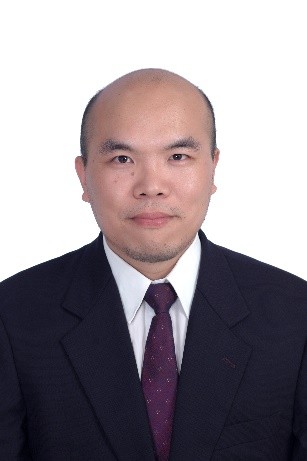Team

Jie Wang, Ph.D., Principal investigator
E-mail :wangjie_apm@163.com;jie.wang@apm.ac.cn
Magnetic resonance imaging(MRI) and viral tracing techniques in anaesthesia and sleep
Education:
Joint Ph.D. 2007-2009 Yale University Biomedical Engineering
PhD. 2004-2009 Lanzhou University, College of Chemistry and Chemical Engineering
B.S. 200-2004 Lanzhou University, Chemistry
Working experience:
2024-Now Principal investigator, Songjiang Institute, Shanghai Jiao Tong University School of Medicine
2017-2024 Professor, Innovation Academy for Precision Measurement Science and Technology, Chinese Academy of Sciences,
2012-2017 Associate Professor, Institute of Physics and Mathematics,Chinese, Academy of Sciences
2009-2012 Assistant Researcher, Institute of Physics and Mathematics,Chinese, Academy of Sciences ,
2010-2013 Postdoc, Yale University,
 Jie Wang
Jie Wang
The research group focuses on magnetic resonance imaging (MRI) technology,systematic integration of optogenetics/pharmacogenetics, fibre-optic calcium recording, membrane clamp, electrophysiology and other advanced neuroscience technologies to analyse the mechanisms of brain diseases. The group focuses on anaesthesia and insomnia disorders, including the following three research areas:
1)Systematically integrating advanced neuroscience and technology to address the mechanisms of anaesthesia and insomnia disorders, and exploring new non-pharmacological therapy for insomnia disorders, laying the foundation for clinical application;
2) Integrate viral tracing to establish genetically encoded magnetic resonance imaging technology to achieve whole-brain detection of specific types of cells in vivo.
3) Collaborate closely with the clinical team to deeply exploit the data of human brain magnetic resonance imaging (especially the comparative analysis before and after treatment), aiming to screen the brain imaging features of insomnia disorders and psychiatric disorders and the corresponding intervention target brain regions, and provide the theoretical basis for the clinical promotion.
-
Jinfeng Wu#, Kangguang Lin#, Weicong Lu , Wenjin Zou , Xiaoyue Li , Yarong Tan , Jingyu Yang , Danhao Zheng , Xiaodong Liu , Bess Yin-Hung Lam , Guiyun Xu , Kun Wang , Roger S,McIntyre , Fei Wang , Kwok-Fai So , Jie Wang*;Enhancing Early Diagnosis of Bipolar Disorder in Adolescents through Multimodal Neuroimaging, Biol Psychiatry, 2024:S0006-3223(24)01485-9

-
Jie Wang, Wenfeng Zhao, Huang Wang, Haixia Leng, Qing Xue, Mao Peng, Baoquan Min, Xiukun Jin, Liucen Tan, Keming Gao, Hongxing Wang*, Brain-wide activation involved in 15 mA transcranial alternating current stimulation in patients with first-episode major depressive disorder, General Psychiatry (IF:11.9), 2024;37:e101338.

-
Xiaolin Liang#, Meng Gong#, Zhikai Wang#, Jie Wang#, Weiwei Guo#, Aoling Cai, Zhenye Yang, Xing Liu, Fuqiang Xu, Wei Xiong*, Chuanhai Fu*, Xiangting Wang*; LncRNA 1 TubAR complexes with TUBB4A and TUBA1A to promote microtubule assembly and maintain myelination, Cell Discovery (IF:13.0), 2024;10(1):54.

-
Weicong Lu#, Jinfeng Wu#, Robin Shao*, Wenjin Zou, Ruoxi Zhang, Xiaoyue Li, Jiehua Kong, Danhao Zheng, Xinhe Tian, Yanling Gao, Sonata Yau, Benjami Goldstein, Guiyun Xu, Kwok-Fai So, Jie Wang,* Kangguang Lin; Genetic and symptomatic risks associated with longitudinal brain morphometry in bipolar disorder, Nature Mental Health, 2024,2, 209–217.

-
Jinpiao Zhu#; Chang Chen#; Xiaodong Liu; Mengying He; Yuanyuan Fang; Li Wang, Junke Jia, Juan Guo; Ziyue Zhao; Chenyi Gao; Jingang He; Fuqiang Xu; Daqing Ma*; Jie Wang*; Zongze Zhang*,Cerebellar Purkinje cell firing promotes conscious recovery from anaesthesia state through coordinating neuronal communications with motor cortex,Theranostics, 2024; 14(2):480-495

-
Yuanyuan Qin#; Jinfeng Wu#; Tao Chen#; Jia Li; Guiling Zhang; Di Wu; Yiran Zhou; Ning Zheng; Aoling Cai; Qin Ning; Anne Manyande; Fuqiang Xu; Jie Wang*; Wenzhen Zhu*; Long-term micro-structure and cerebral blood flow changes in patients recovered from COVID-19 without neurological manifestations, Journal of Clinical Investigation, 2021, 131(8): e147329 .

-
Mei Li#, Zhuang Liu#, Yang Wu, Ning Zheng, Xiaodong Liu, Aoling Cai, Danhao Zheng, Jinpiao Zhu, Jinfeng Wu, Lingling Xu, Xihai Li, Ling-Qiang Zhu, Anne Manyande, Fuqiang Xu*, Jie Wang*, In vivo Imaging of Astrocytes in the Whole Brain with Engineered AAVs and Diffusion Weighted Magnetic Resonance Imaging, Molecular Psychiatry, 2024;29(3):545-552

-
Jinpiao Zhu#, Chang Chen#, Jinfeng Wu, Mengying He, Shuang Li, Yuanyuan Fang, Yan Zhou, Haibo Xu, Saeed Sadigh-Eteghad, Anne Manyande, Feng Zheng, Ting Chen, Fuqiang Xu, Daqing Ma, Jie Wang*, Zongze Zhang*, Propofol ameliorates social and anxiety-related behaviours through enhancing mPFC functional connectivity in the sleep-deprived rat: In comparison with sevoflurane, British Journal of Anaesthesia, 2023, 131(3): 531-541.

-
Yaqing Shu#; Fuhua Peng#; Bingchu Zhao; Chunxin Liu; Qihui Li; Huilu Li; Yuge Wang; Yanjun Jiang; Tingting Lu; Qin Wang; Jian Sun; Huiyu Feng; Zhengqi Lu; Xiaodong Liu*; Jie Wang*; Wei Qiu*; Transfer of patient’s peripheral blood mononuclear cells (PBMCs) disrupts blood–brain barrier and induces anti-NMDAR encephalitis: a study of novel humanized PBMC mouse model, Journal of Neuroinflammation, 2023, 20: 164.

-
Tian Tian#, Jinfeng Wu#, Tao Chen, Jia Li, Su Yan, Yiran Zhou, Xiaolong Peng, Yuanhao Li, Ning Zheng, Aoling Cai, Qin Ning, Hongbing Xiang, Fuqiang Xu, Yuanyuan Qin*, Wenzhen Zhu*, Jie Wang*, Long-term follow-up studies for dynamic brain changes in recovered COVID-19 patients without neurological manifestations. JCI insight, 2022, 7(4): e155827










 Location:
Location: